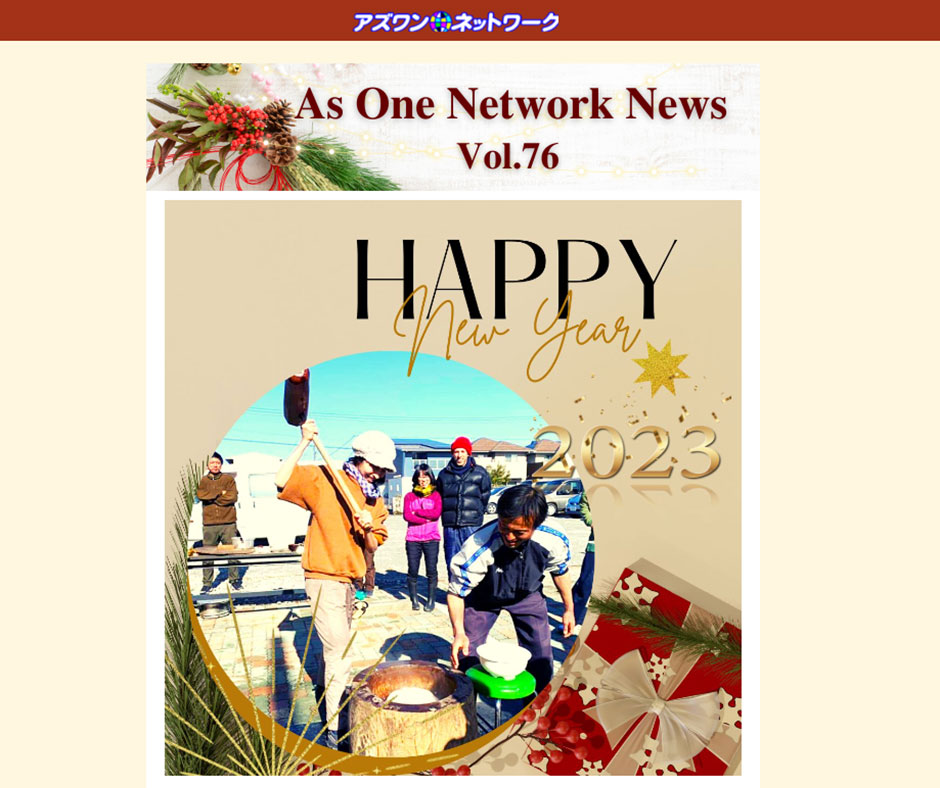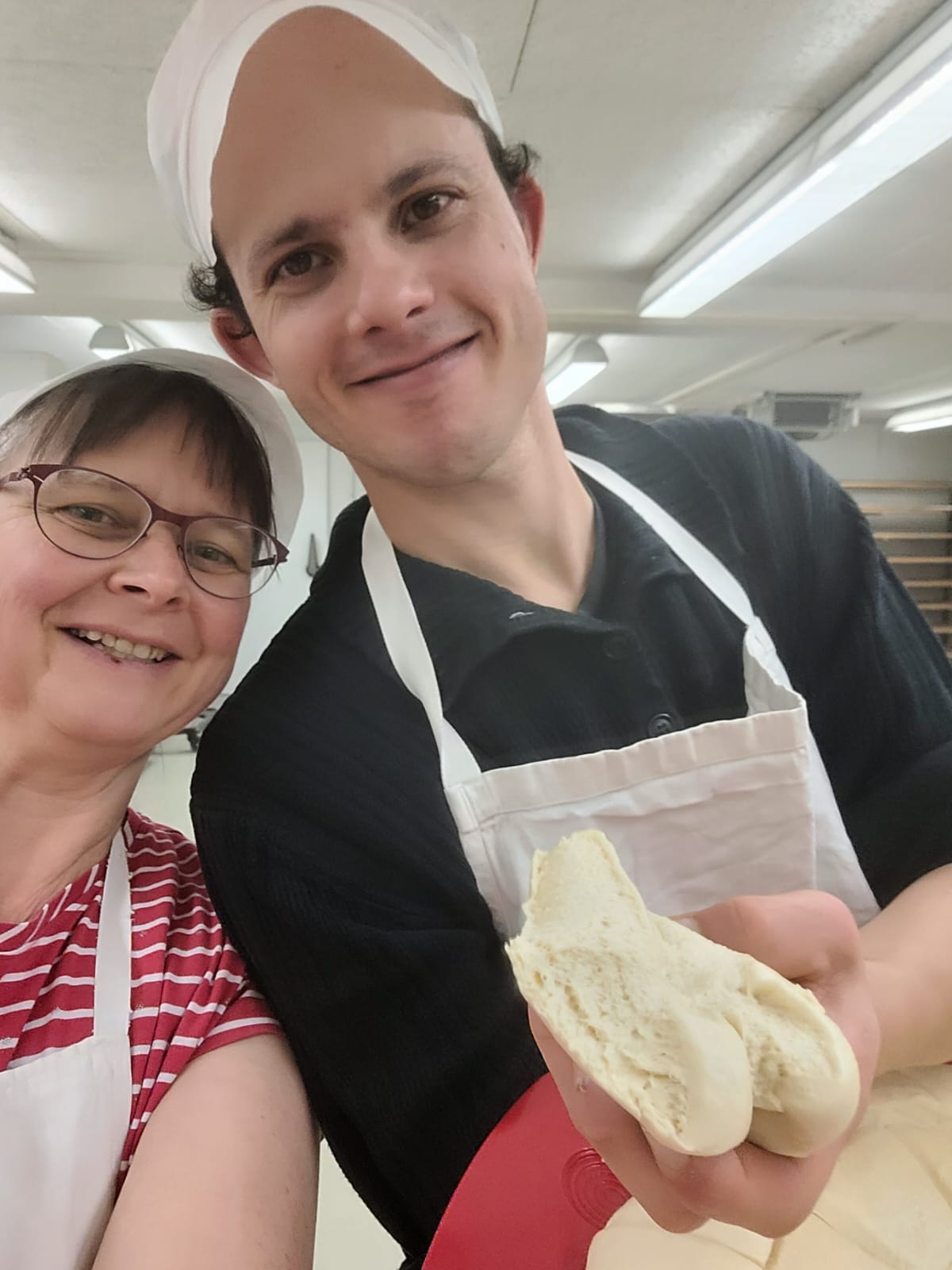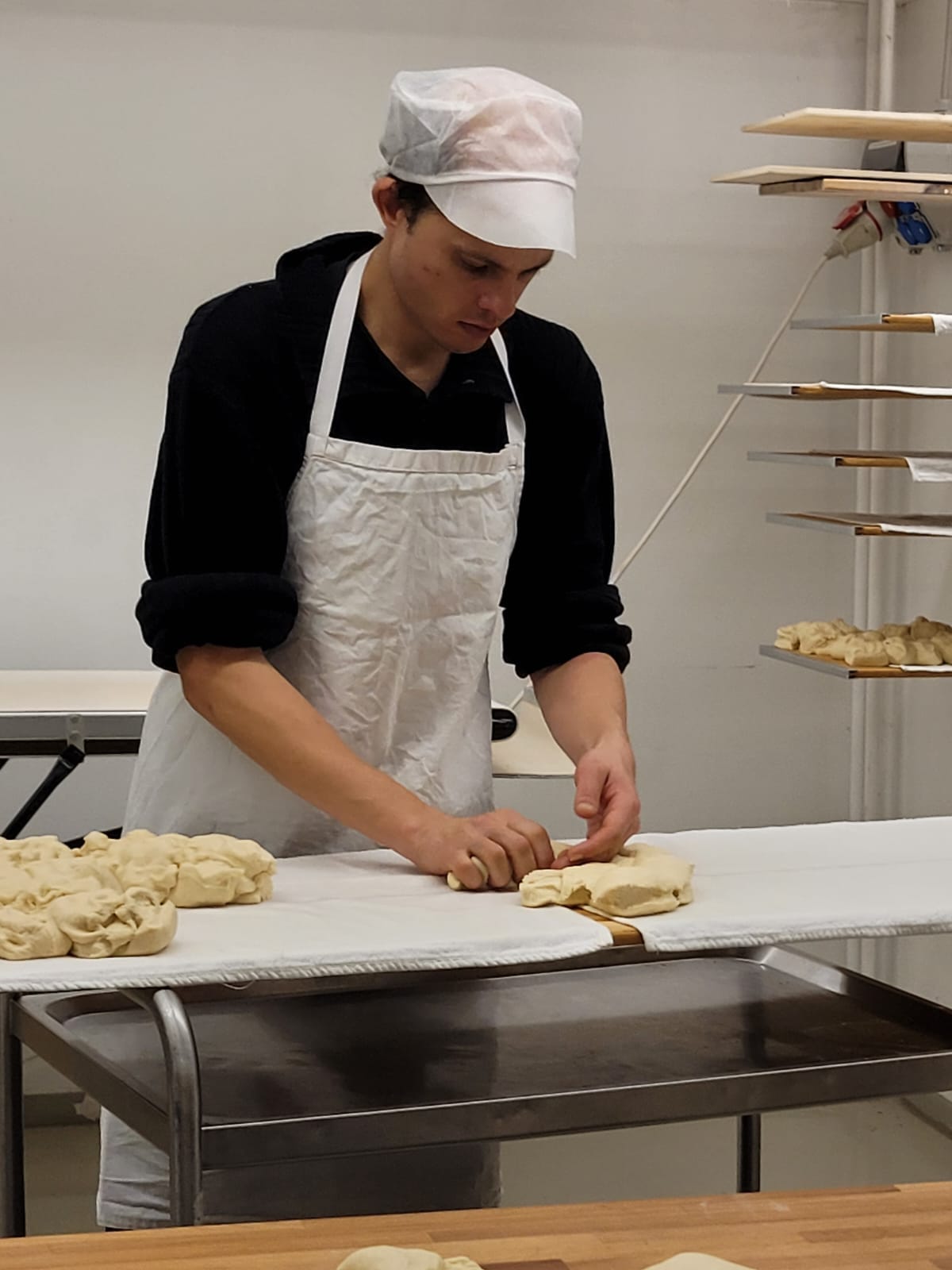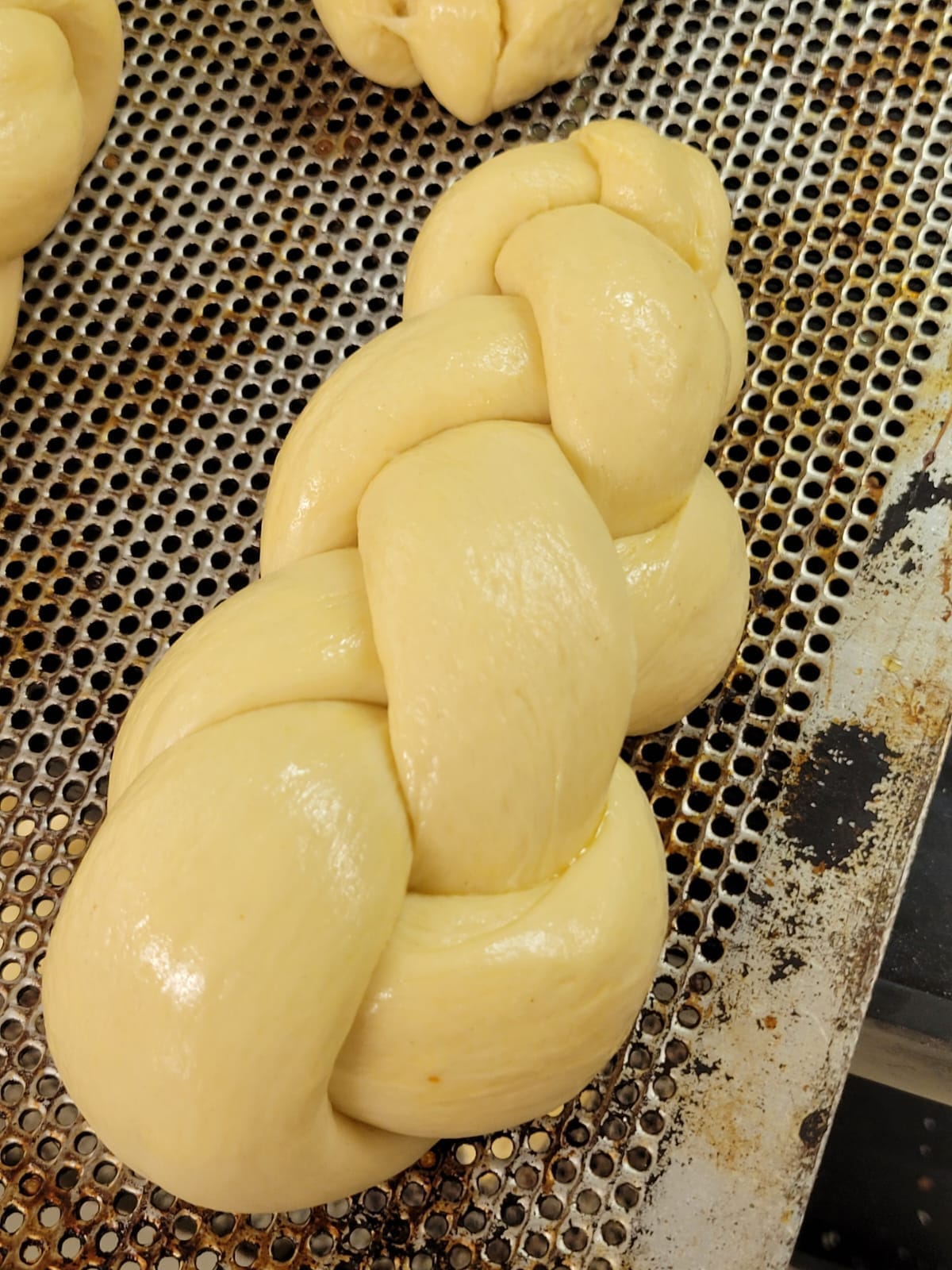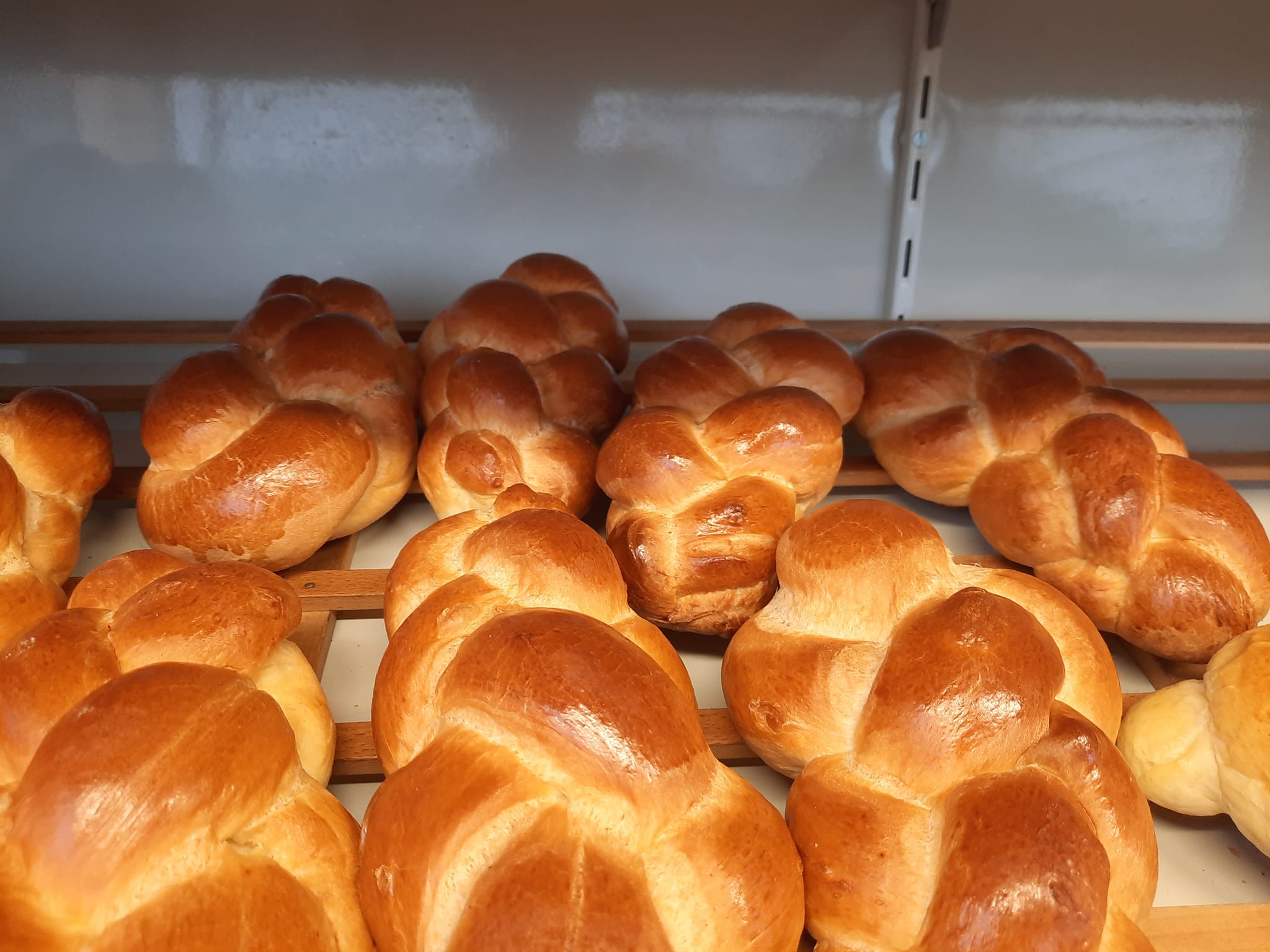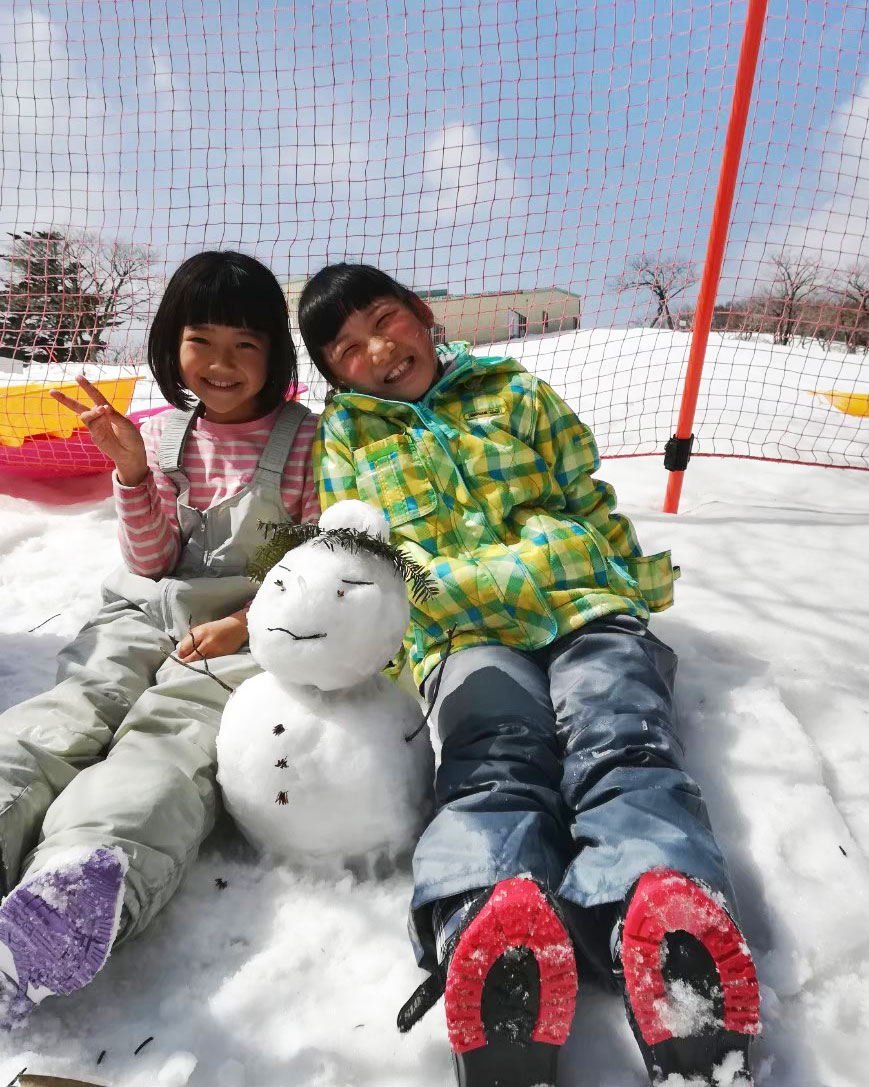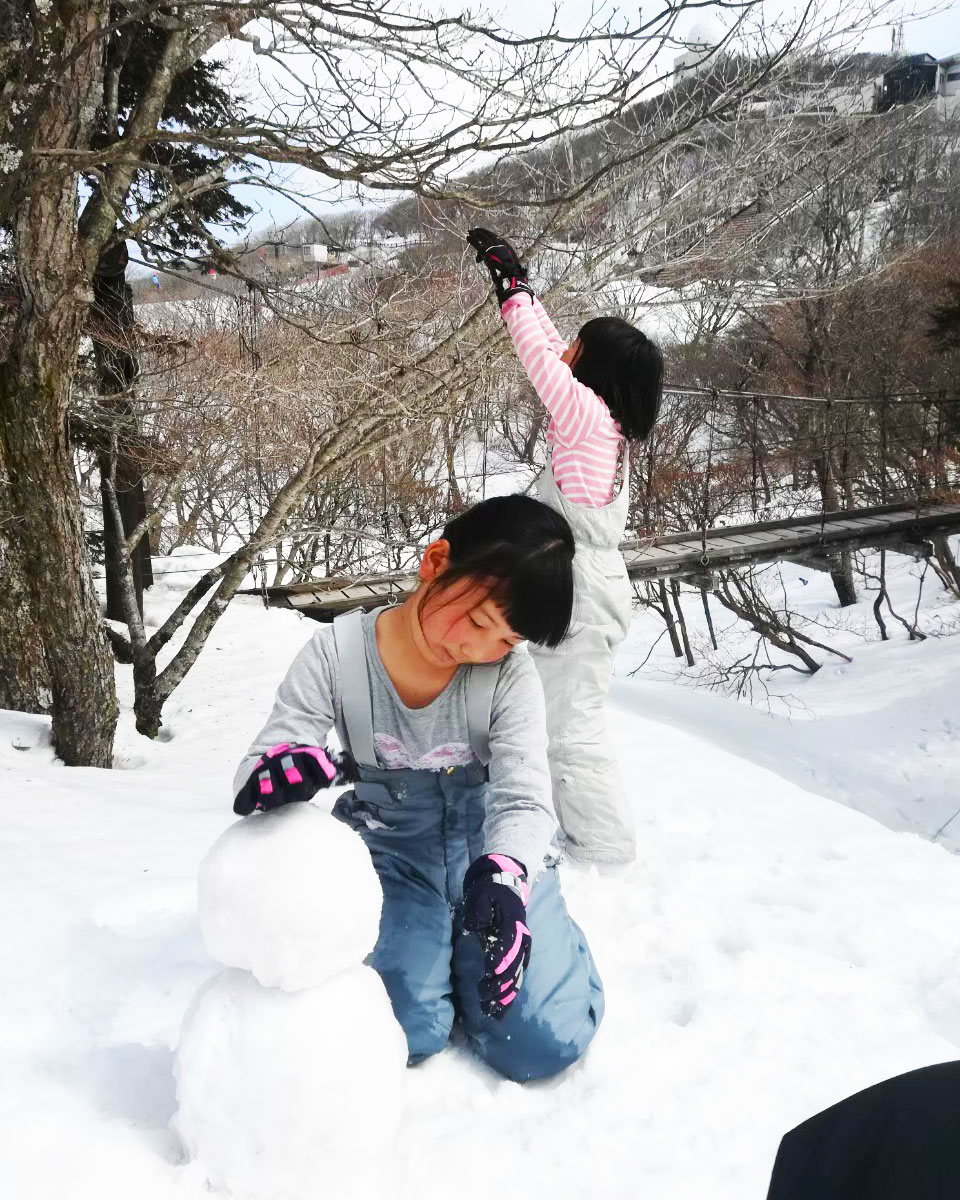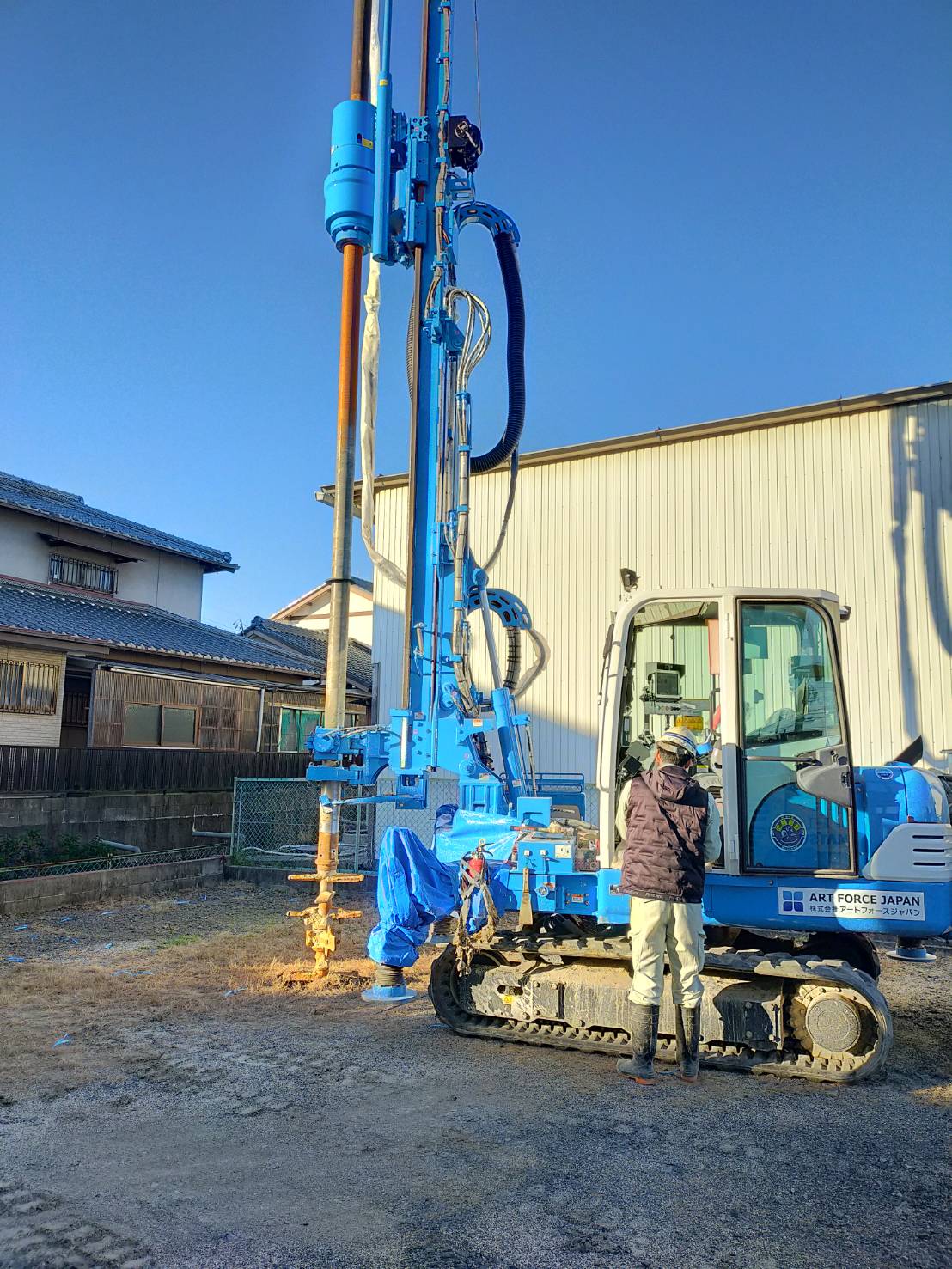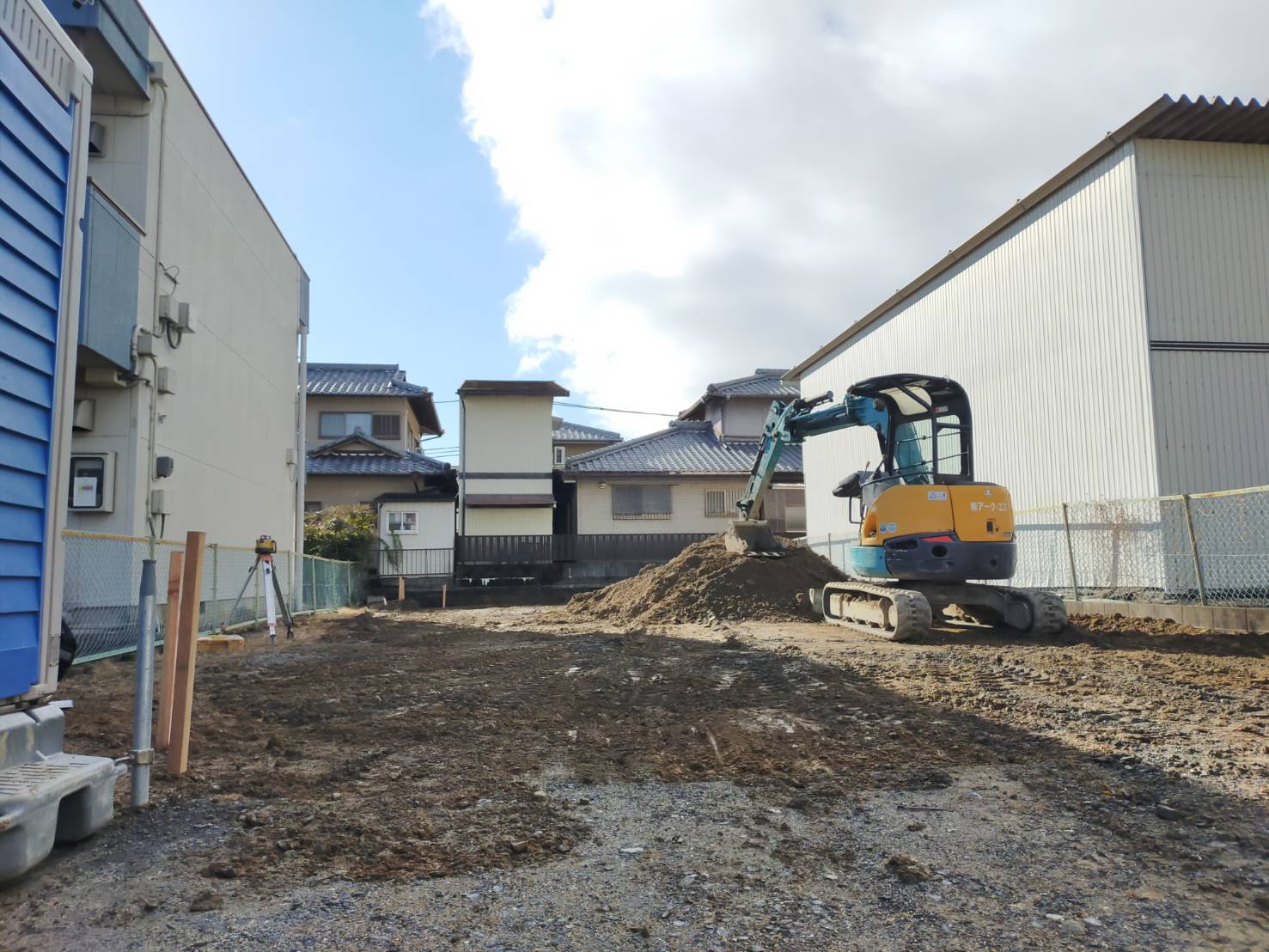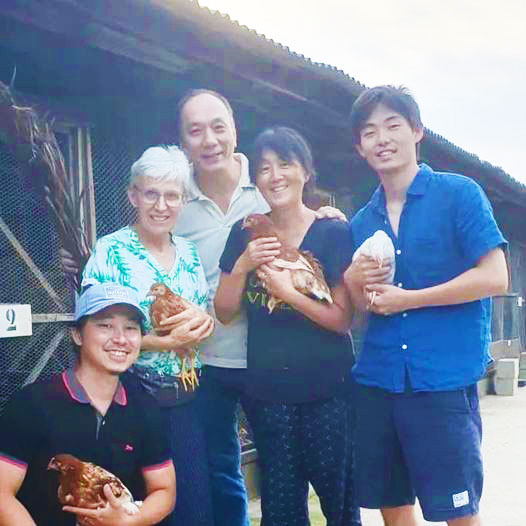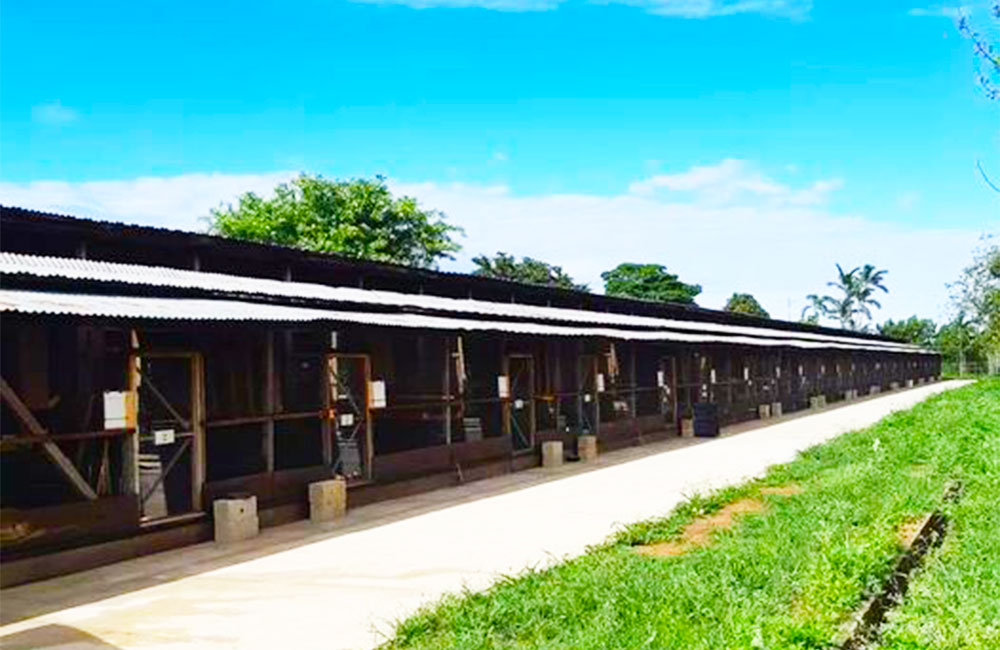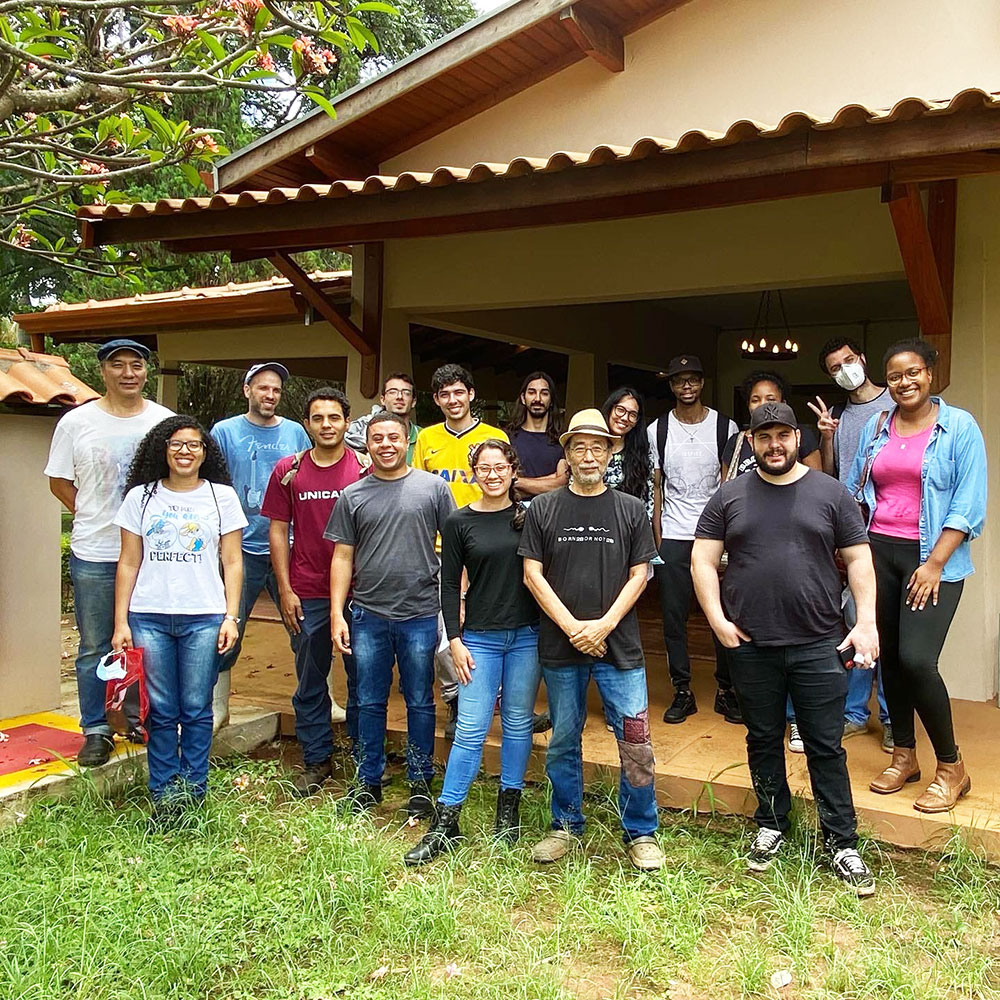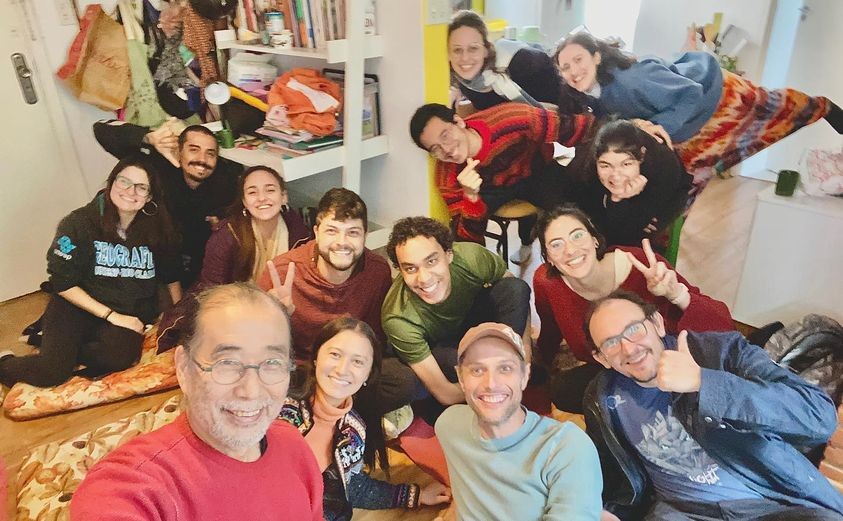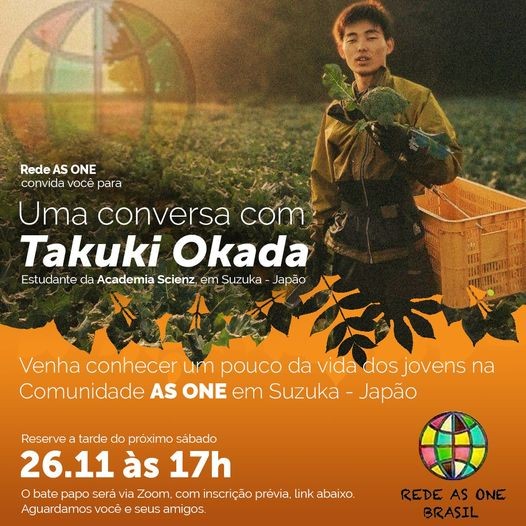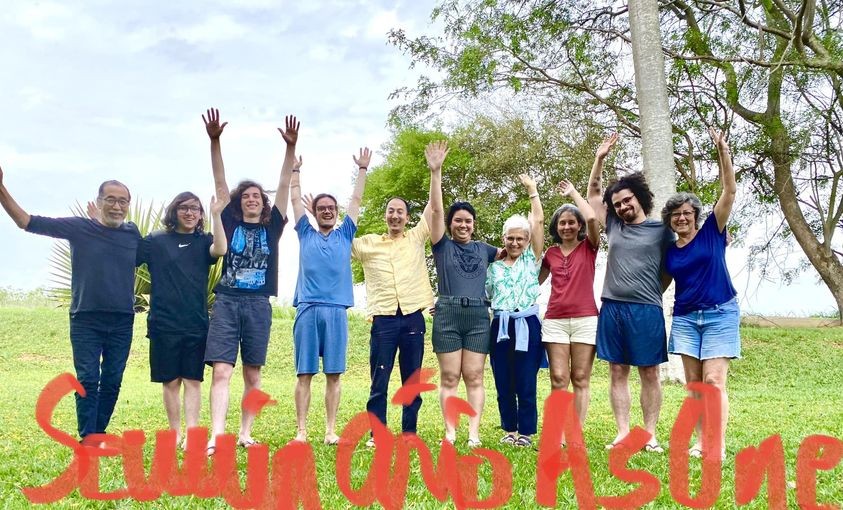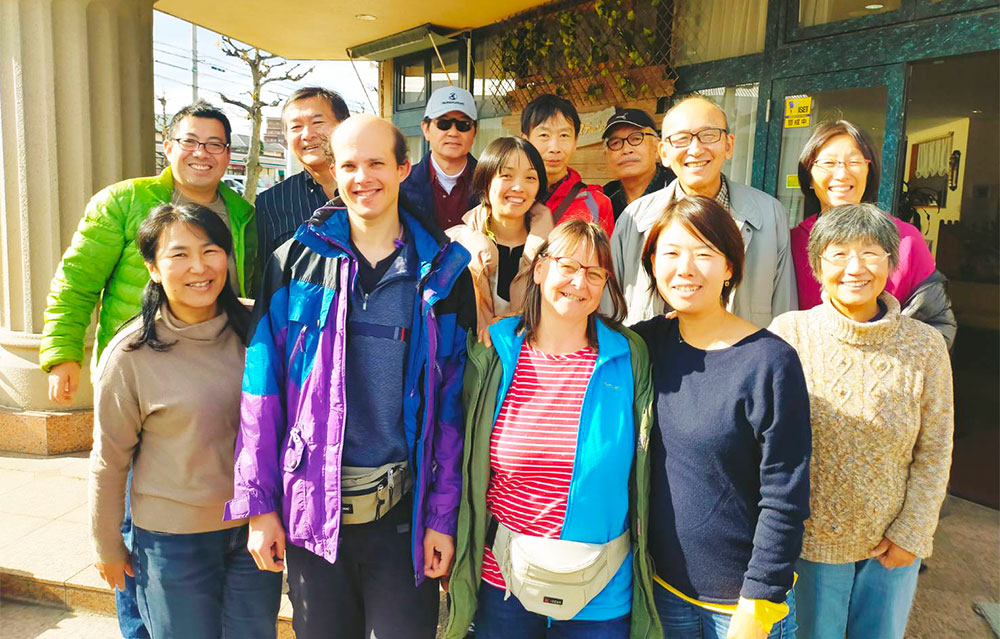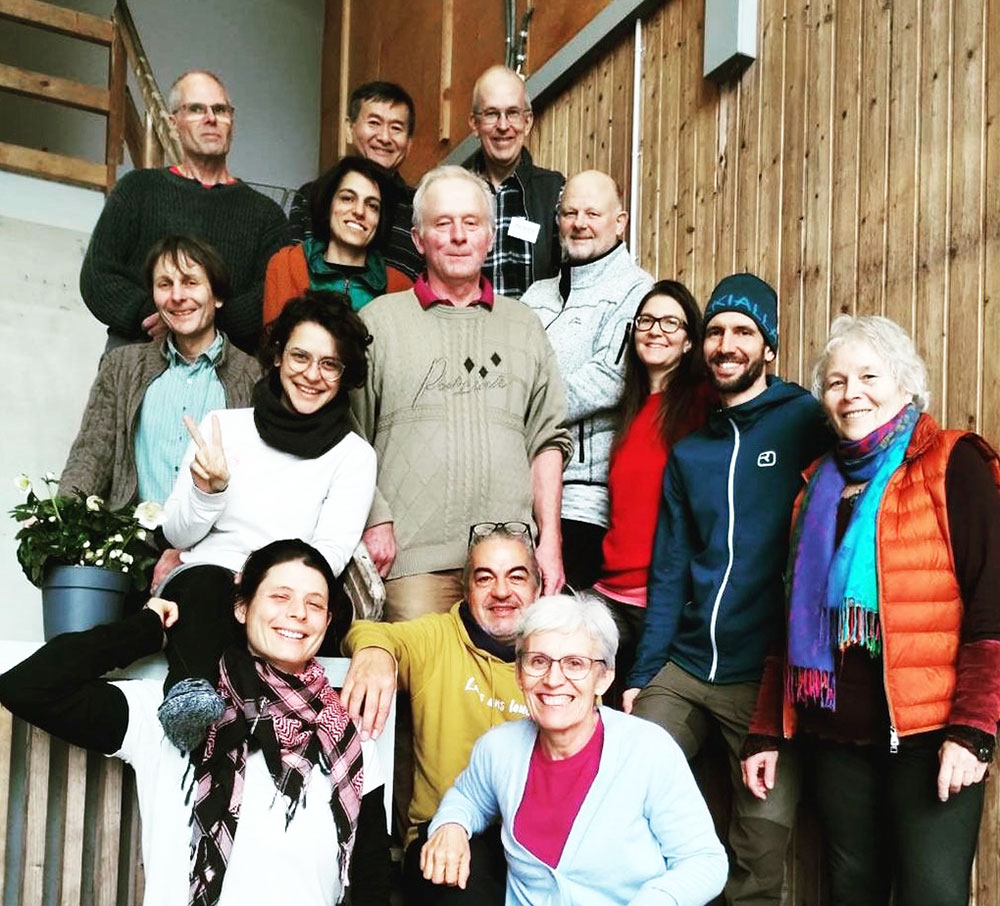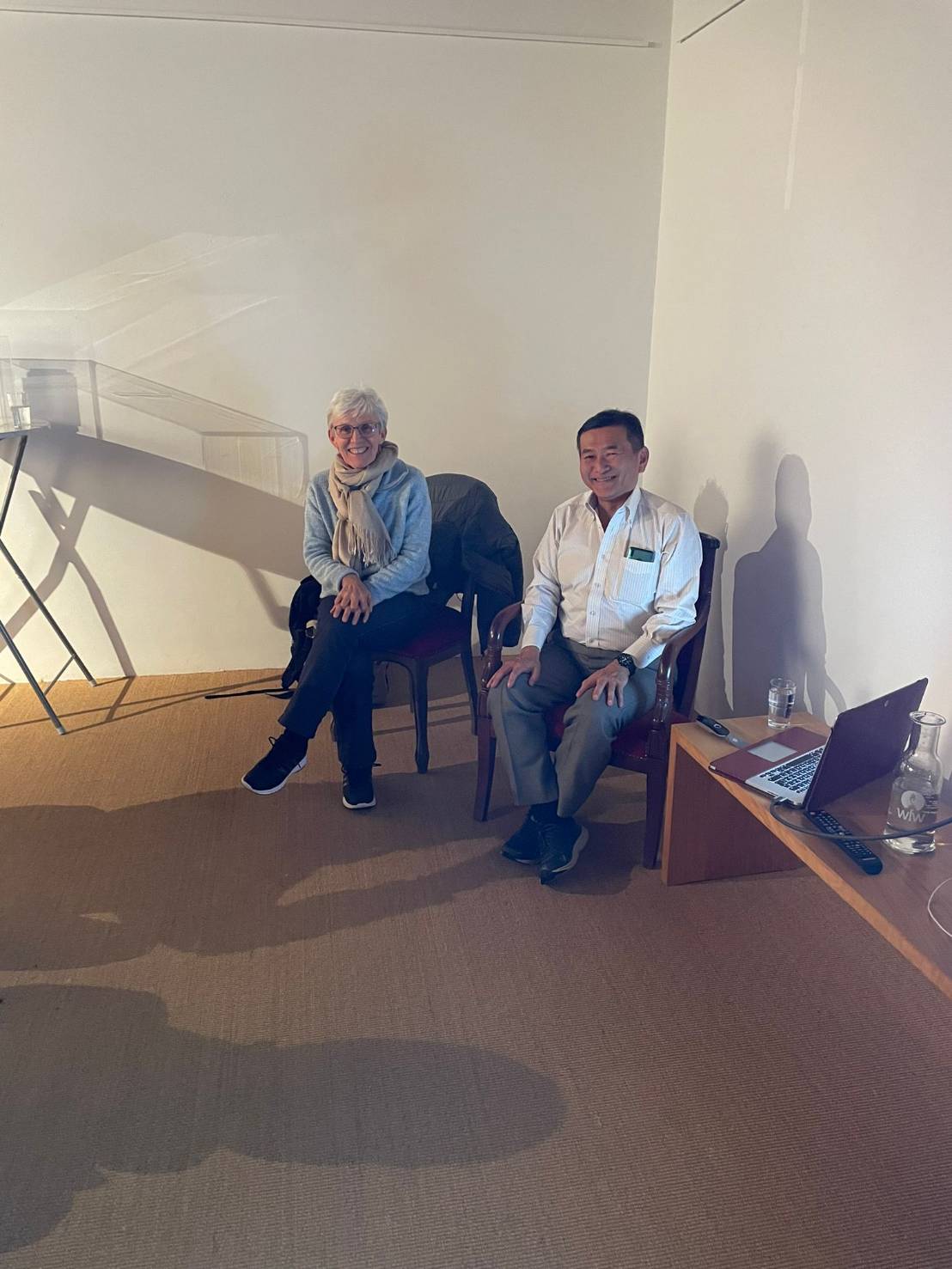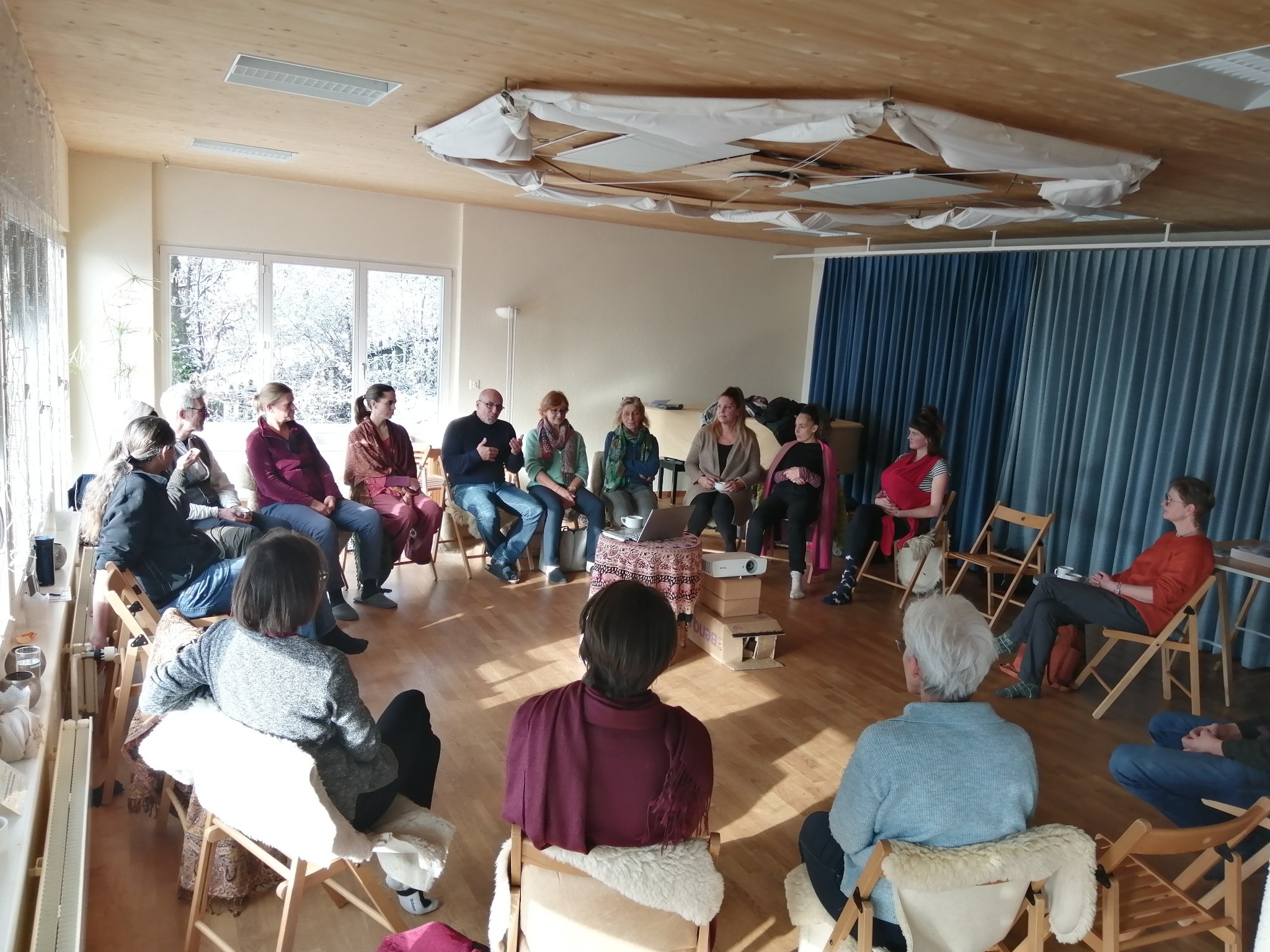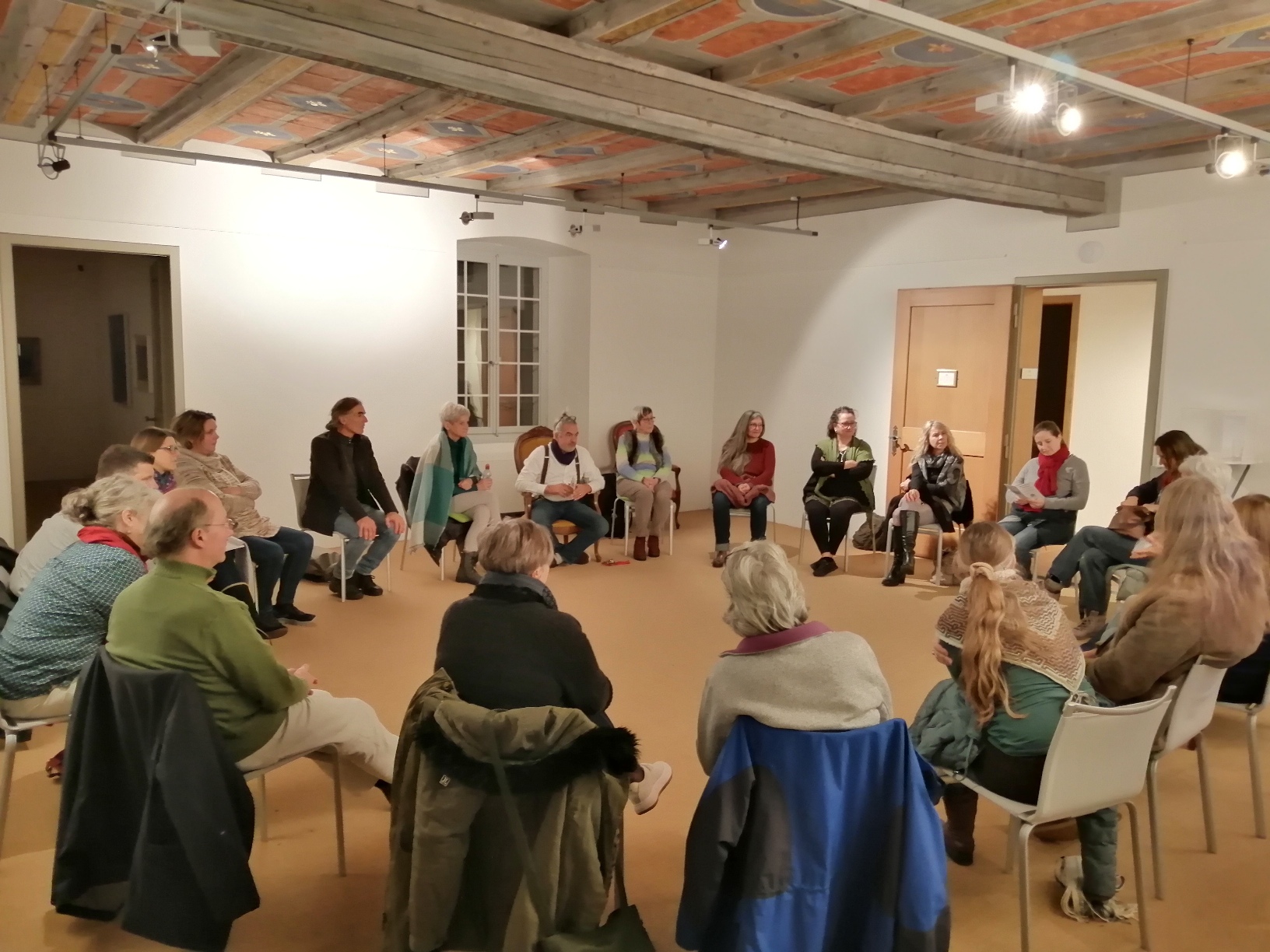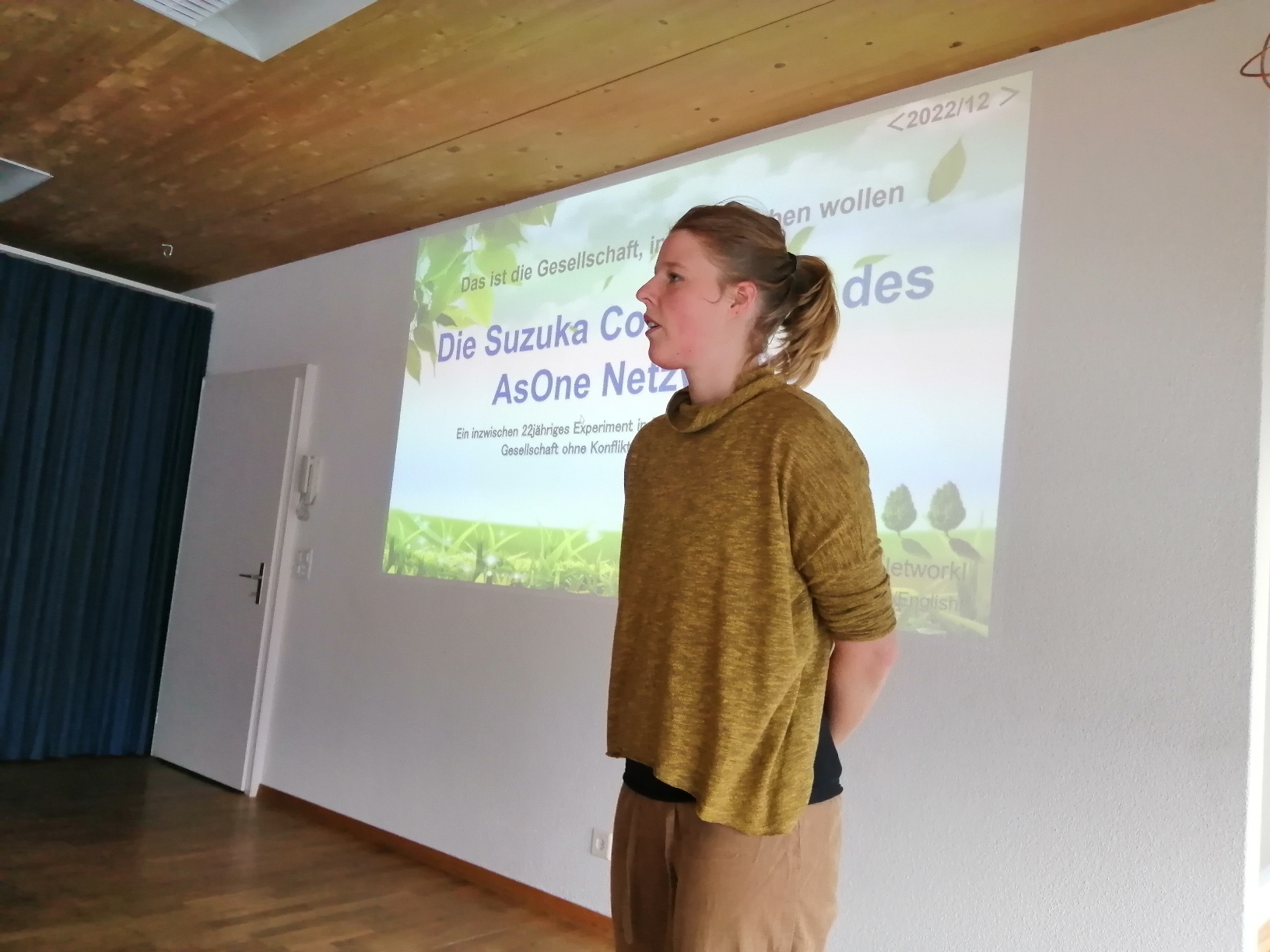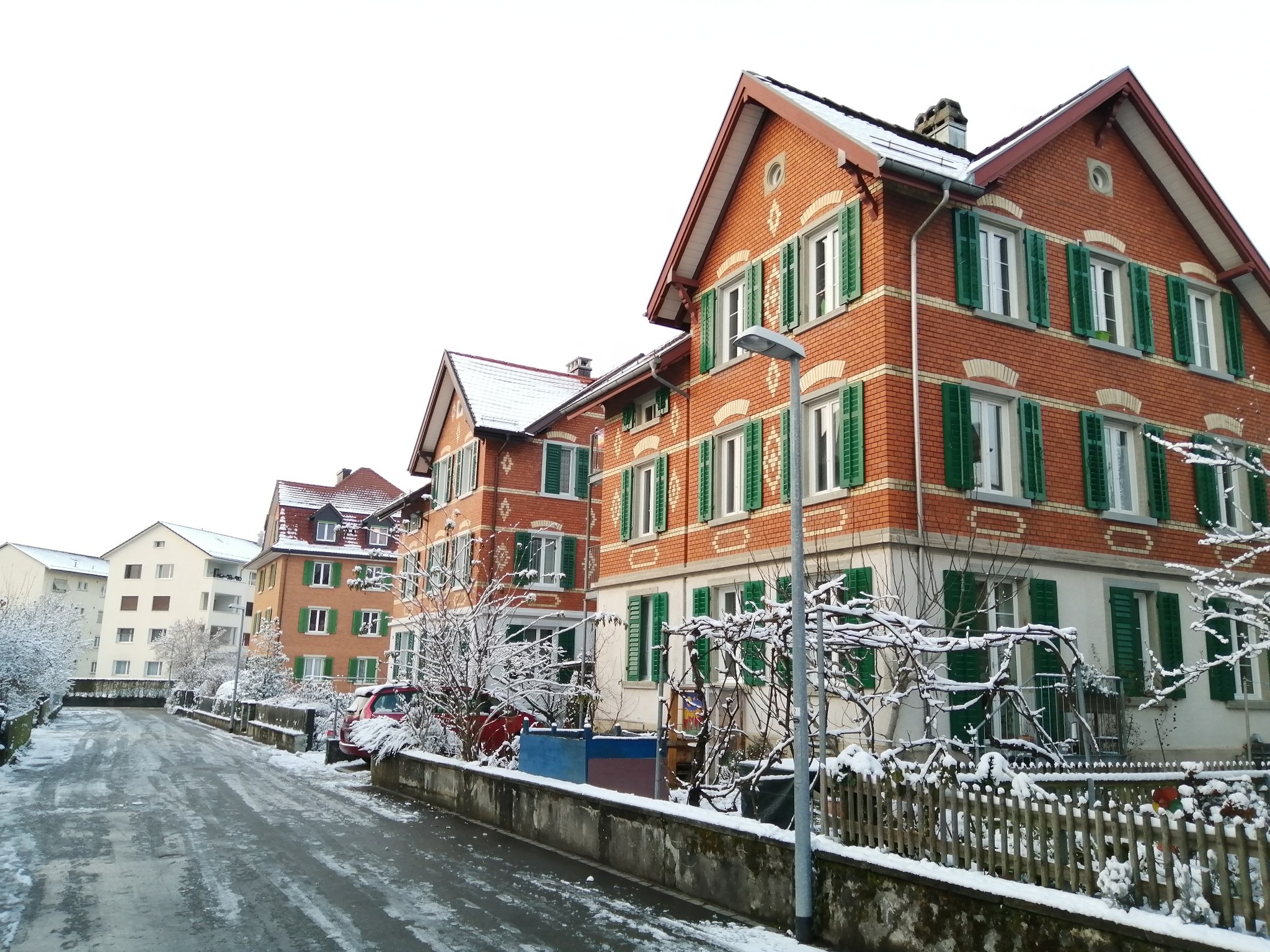Community Saijiki literary calendar
Entrusting
坂井和貴(Kazuki Sakai)
On Sunday mornings in winter, I pack up and head for Misuzu Lake.
It is a small lake about 1,000 meters above sea level, and in my distant boyhood, it was our "winter garden”.
In December, a corner of a local newspaper would indicate the thickness of the ice on Lake Misuzu and other lakes in Nagano Prefecture, and tell us whether or not we could skate on the ice. I vaguely remember that the borderline was around 12 cm, and every morning I would roll up the newspaper, hoping that the ice would break through that point soon.

Most of the time, we take a bus from downtown Matsumoto.
The elevation of Matsumoto Station is less than 600 meters, so it is about a 400-meter climb, but it is steep from Asama Onsen on the way. At each of the seven bends and ninety-nine turns, the car slows down so that we can enjoy a relaxing view of the city below. It was on this mountain road that I encountered a sea of clouds for the first time in my life, which shook my children's hearts.
As the end of the road nears, I see children already starting to slide on the ice and adults fishing for wakasagi (smelt), and my heart goes down to the lake a step earlier. ・・・・・
Lake MisuzuL used to be the site of the National Winter Athletic Meet, with more than 30 cm of ice every winter, but in recent years there has been almost no ice at all, and of course the skating rink has disappeared, and the crowds of children heading there have ceased to exist.
Compared to those days, it may be a much milder winter now, but winter life has begun here in the Suzuka community.
"Hey, how many kerosene cans count?"
Every Friday afternoon around 1:00 p.m., Mr. Onda would show up at the information desk and ask.
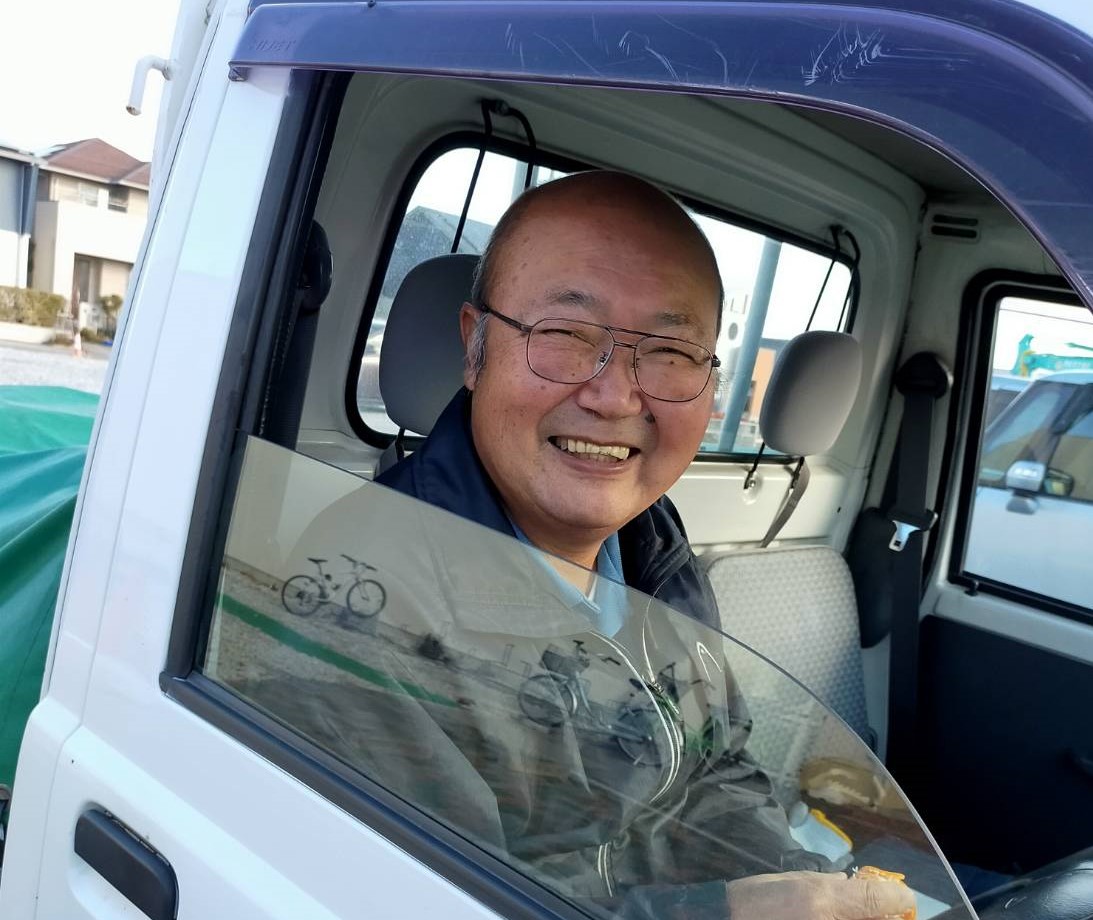
"I think it's about 20 cans so far, I'll send out another confirmation e-mail to the group line."
Nana-chan responds, and several additional orders are placed, closing at 3:00 PM.
Then Onda-san came again and took the order forms from everyone.
On the following Saturday morning, Mr. Onda goes around to each house and delivers a 20-liter tank full of kerosene to the front door.
Although kerosene heaters are more fuel-efficient than electric or gas heaters, it would be unrealistic to expect each household member to go to a gas station to fetch kerosene every time they need it.
It is because there are people like Mr. Onda who are in charge of this task that the project has continued for many years, and it can be said that the project has become a reality.
Also, by specializing in this area, various ideas are born, such as where to purchase the items and how to deliver them, which makes the process more enjoyable. Or, "Hey, Mr. or Ms., I haven't received your order for kerosene. I hope you haven't forgotten. Are you keeping warm? " We can look at each other's lives from a single bottle of kerosene.
"I wish I had a stove to heat the bathroom, what do you think?"
Masako asked,
"I have a gift certificate from Suzuka City, and I can use it at an electronics store there. I hope I can buy a stove with it."
Masako is a member of the Thursday-1 family in the community, and she often comes to me for advice. The other day, we bought a "book stand for reading in bed" together, and I went to install it in her bedroom. I found a picture of Mr. Ogura, her partner who passed away a few years ago, on her bedside table, so I unexpectedly had the chance to pray for him.
We both searched the Internet for the right kind of heater and decided that this halogen heater, which has no risk of electric shock, would be a good choice. Masako said she would go there in the afternoon.
A few days later, I was wondering what had happened to the heater.
"・・・then I was going to buy a heater, but I wasn't feeling well, so I decided not to go. It's not very cold yet, so I thought I'd give it a try and see how long I can go without a heater. "
Some of the family members said, "You don't have to hold back," or "You're qualified enough to buy a stove."
The next day, the strongest cold wave of this winter was coming! or so the weather news came on.
"Masako-san, I wonder if she is too lazy to go out and buy one by herself. Let's go to the electronics store together."
So we got in touch with each other and drove to the electronics store. Come to think of it, she had been going to the hospital regularly for medical treatment, had side effects from her medication, and had also had to give up her driver's license, all during this time.
We went in, and since we had already decided what we were going to buy, we were done in 10 minutes. We were able to carry it right up to her room, set it up, and use it.
When I met Masako two days later, she called me.
She said, "I just turned it on for five minutes and it warmed up the bathroom. It wasn't cold at all even though there was a cold wave coming."
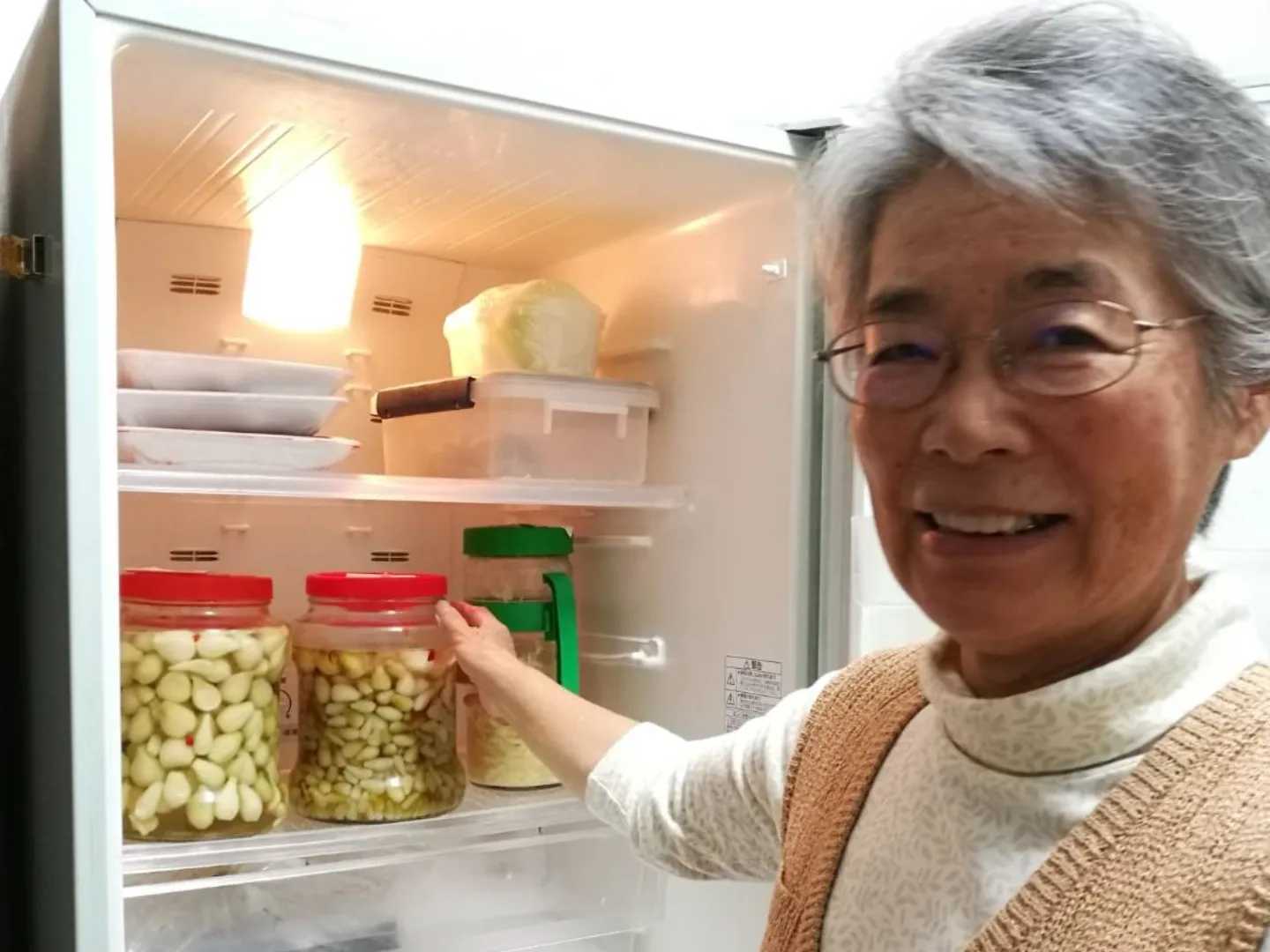
Mr. Iwata is a Japanese-style painter who lives in the community.
Every night, he goes to the Motoyama family diagonally across the street to take a bath.
The trigger was that as part of his treatment for ALS (amyotrophic lateral sclerosis), he was no longer able to apply a neck and shoulder bandage to his neck and shoulders before going to bed. At first, he only went to have the pads applied, but then he began to feel hesitant about bothering Mr. Motoyama and Ms. Teruko late at night just for that purpose, so he would go or not. When he mentioned this to the others,
"Well, why don't you go take a bath and have them put a sheet on you at the end of the day? Then, if you leave the laundry there, Teruko-san will be happy to wash it for you. Iwata-san, you won't have to prepare and clean up your own bath, and you can have your laundry done, too."
Mr. Ono came up with the idea, and for the past six months, Mr. Iwata's "Motoyama family life" has continued.
When I went to take a bath at the Motoyama household,
I would find the two of them watching TV over the kotatsu.
When I came out of the bath,
they would put a compress on me and Teruko would rub my shoulders.
Teruko-san rubs my shoulders and we watch TV together.
It's a very pleasant time!
Yesterday, I fell in love with a classical guitarist's performance.
Today, Mr. Motoyama and I watched a program about the 50th anniversary of Youmin's debut.
It's just a little time at the Motoyama family's house, but
I had the feeling of living there.
Dining life, life with JOY, life with Meetings,
I feel that the Motoyama family's life is like these.
I mean, the children's practice time and the adults' drawing time are also part of my life.
What do I mean by "living"?
I feel like I am not alone,
but in the midst of such a place and activity,
receiving something one way or the other.
I can say it is a place where I can be fulfilled.
But there is something more than just me.
I'm putting myself there.
I entrust myself to it?
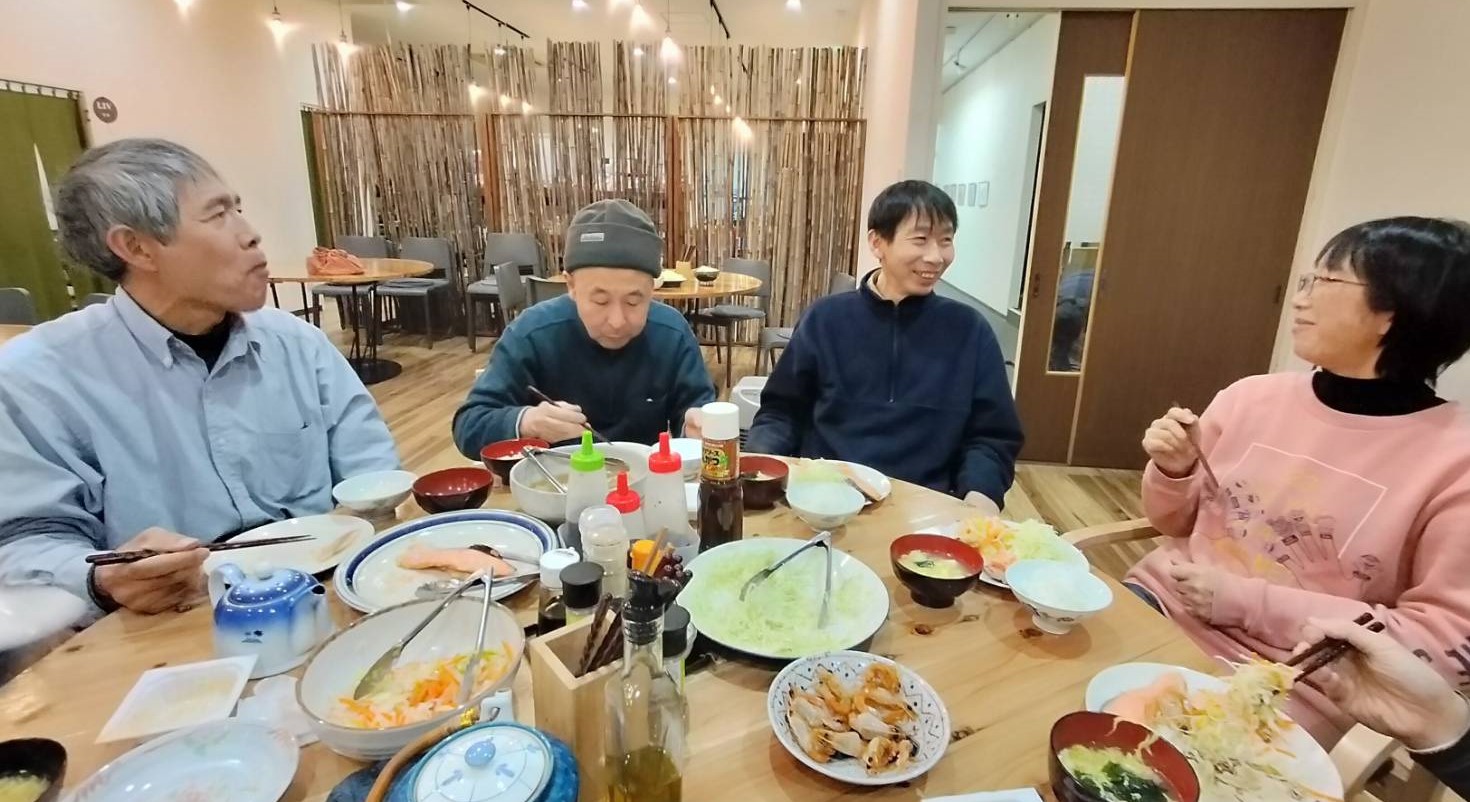
Sometimes, people who read this Community Saijiki literary calender ask me this question.
"Whenever I read the Community Saijiki literary calendars, I always get a warm feeling, but do you have any conflicts or confrontations living together in the community?"
Each one of us is not a saint, we are not well-rounded people, and we are all inexperienced and inadequate. We make mistakes, failures, and errors frequently, and at such times, we sometimes feel as if we are blaming the other person based on our past habits and circuits.
But at such times, when I become aware that we are working and living with each other trying to make sure there are no mistakes, "blaming" clearly comes to the fore as something unusual and out of the ordinary that does not fit the situation or my own mindset. It makes me feel ashamed. It is ridiculous and makes me laugh.
I hear that blaming does not solve the problem because people tend to be stubborn or hide it, that what we want to do is not to blame but to investigate the cause of the mistake, and that theoretically this may be true, but rather than theory or logic, I feel that "blaming" is becoming less and less comfortable for me and society, and it seems to be gradually disappearing from within and around me...
The way home from Lake Misuzu is almost always changed to walking in the upper grades of elementary school.
No one decided to do so, but for some reason it just happens.
We slip and slide until we can't stand on our backs until the afternoon, and then we go back down the mountain.
With friends and children alone, sometimes by myself.
We descend, slipping and sliding down animal trails, paths, cliffs, and the like, each time finding a new route. with no intention of going back along the winding road.
It was about 15 kilometers to the city center where we lived. But I didn't think too much about it before I did it. I just imitated the upperclassmen and did it right away, so there was no sense that it was hard or tiring.
Sometimes I got injured or lost, but there were also some interesting experiences, such as helping a lady pull out radishes and getting one as a souvenir when I ran into her working in the mountains, or being overwhelmed when I happened to come across a festival where everyone in the town of Asama Onsen came out to the entrance to pickle nozawana (a type of pickled nozawana). I was inspired by such ocasions, and decided to walk down the mountain again.
When I arrived home in the evening, my parents, whether they knew it or not, always greeted me with a calm face.
In this day and age, people would be concerned about the safety of mountain trails or worried about children walking alone, but the atmosphere of the town or the social fabric of the town made such things easy.
If one lived a normal life at that time and place, everyone would be able to do so.
It is a blessing that both parents and children can entrust their lives to such a place without any doubts at all.
A state of mind in which there is no awareness of even "entrusting".
About 10 days ago
"We are now preparing kimchi at the Friday-4 family."
A message and a picture came in from Naoe and Junna.
Since Heung mi and Jin-chan from Korea are now in the community, the entire Friday-4 family started making kimchi (spicy and sour Korean pickles) in earnest under their supervision.
We were supposed to do it in front of Heung mi's house, but unfortunately it was raining, so we had to spread out in the kitchen, living room, and bathroom.
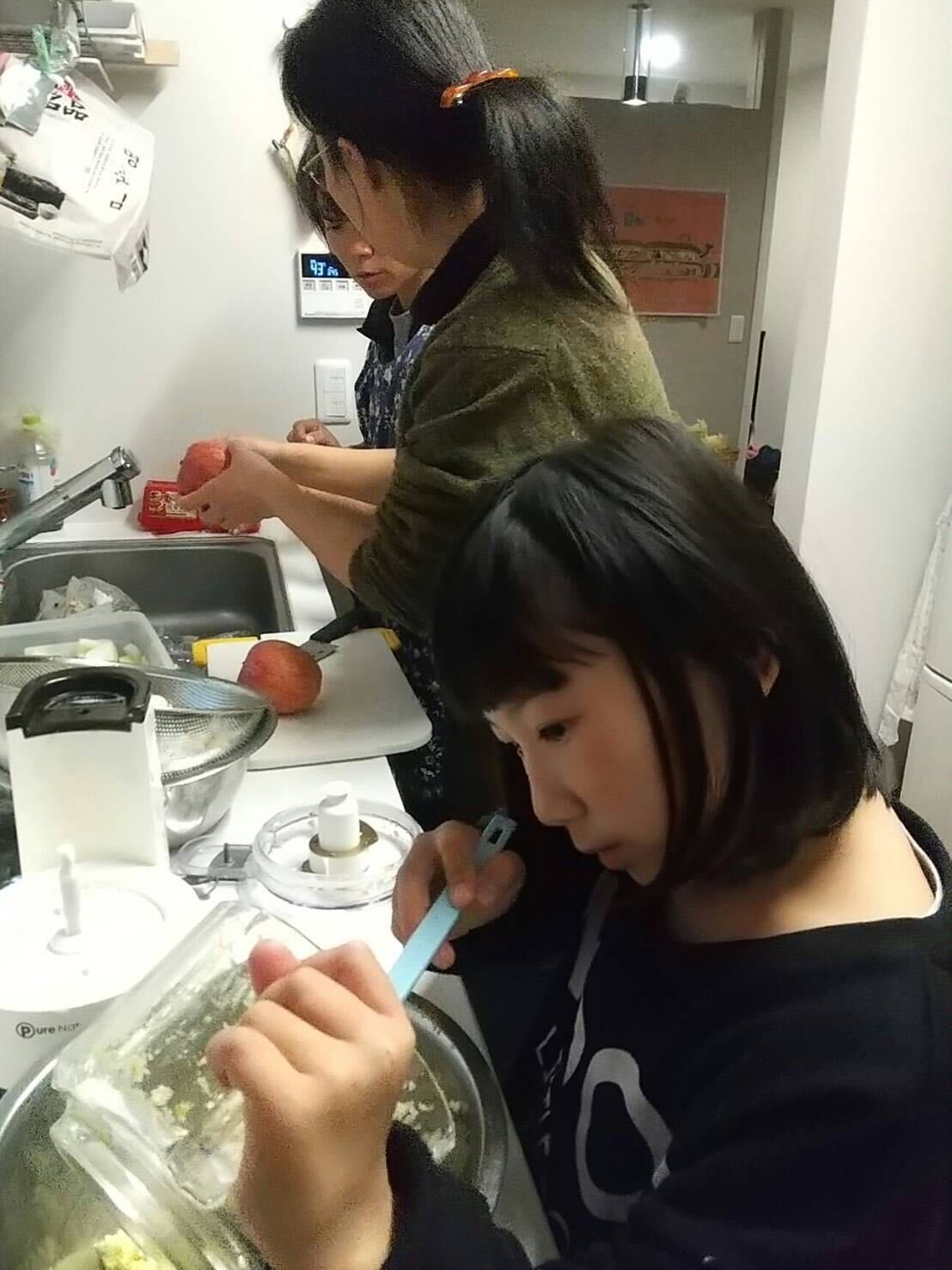
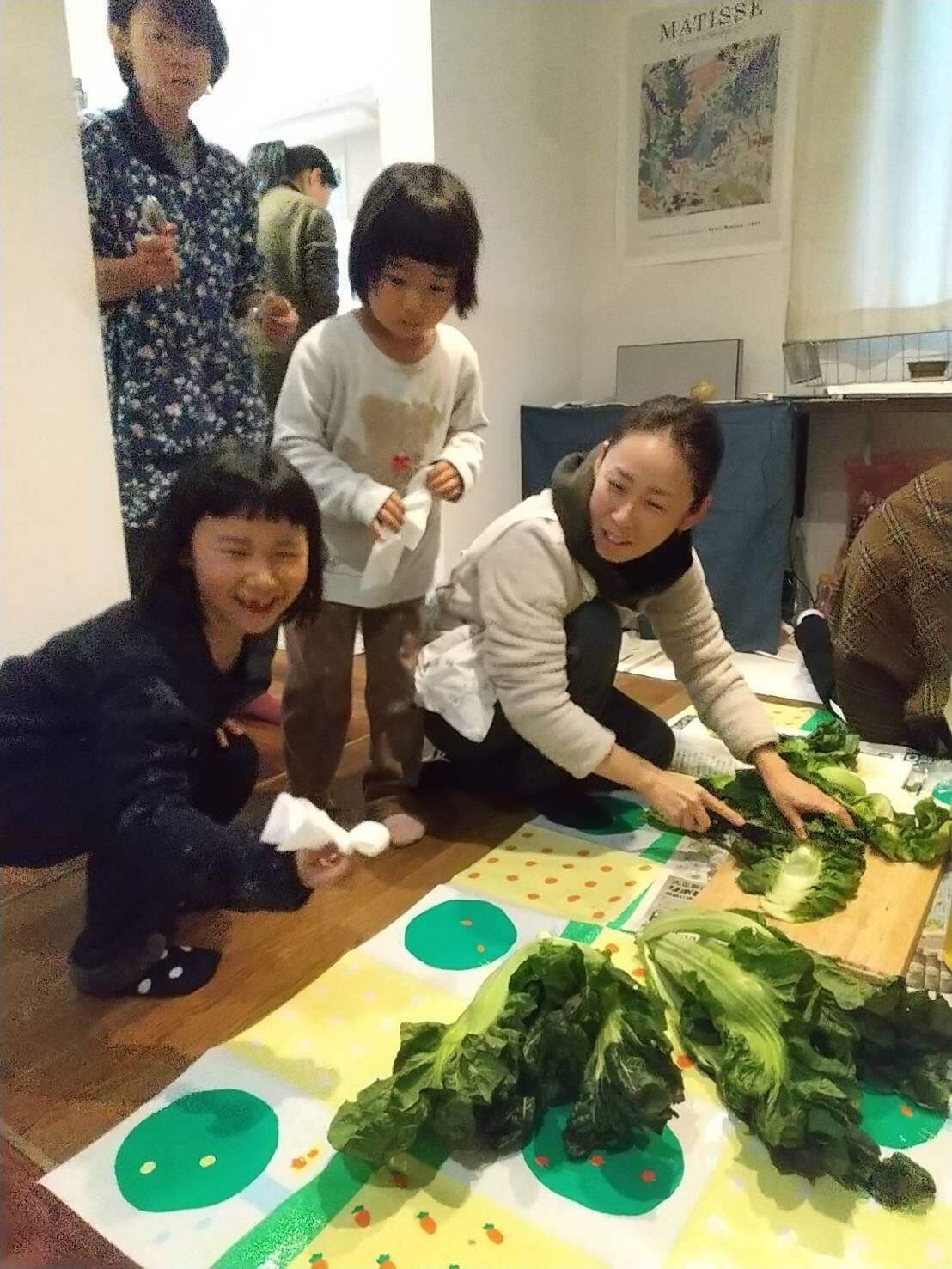 I went to Heung mi's house with Sarah, Umi, and Haru.
I went to Heung mi's house with Sarah, Umi, and Haru.
We found many vegetable containers from the farm at the front door.
Jin-chan and I moved the table out of the living room.
We spread out a sheet on the ground, which became a large space, and prepared cutting boards and knives.
It was very Korean! The feeling of the end of the year was starting to sink in.
Madoka-chan and Aya-chan were working under Jin-chan's guidance.
They started to prepare the dishes by carrying daikon radishes, Chinese cabbage, onions, etc. Takuya also came with a slicer and started to grind daikon radishes.
He is a regular preparer at Mum's Lunchbox company, so I guess he is good at what he does.
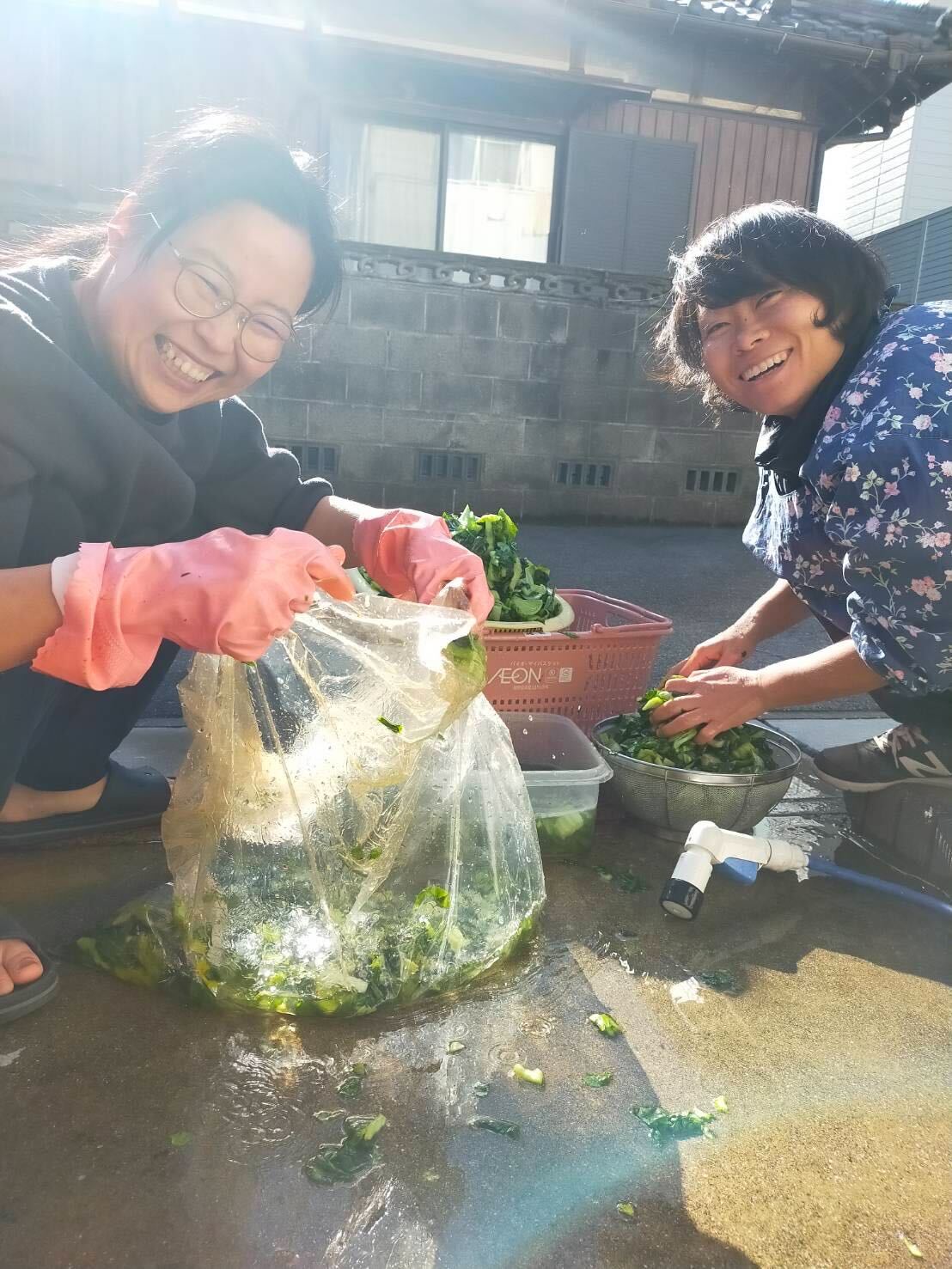
Heung mi and Jin-chan occasionally hold a meeting in Korean.
They are the ones who tell the gathered members of the Friday-4 family what to do.
Sara, 9 years old, wanted to help out right away, so she went to the kitchen to prepare food with Heung mi, looking at her sideways.
She looked just like she would at a children's school.
She was listening to Heung mi carefully. I think she was probably smacking garlic or something.
Haru and Umi played for a while, but then they decided they wanted to help.
Haru and I went to Kobayashi's house to get a kitchen knife for children.
Then Madoka-chan prepared the vegetables for Haru and Umi to cut.
...
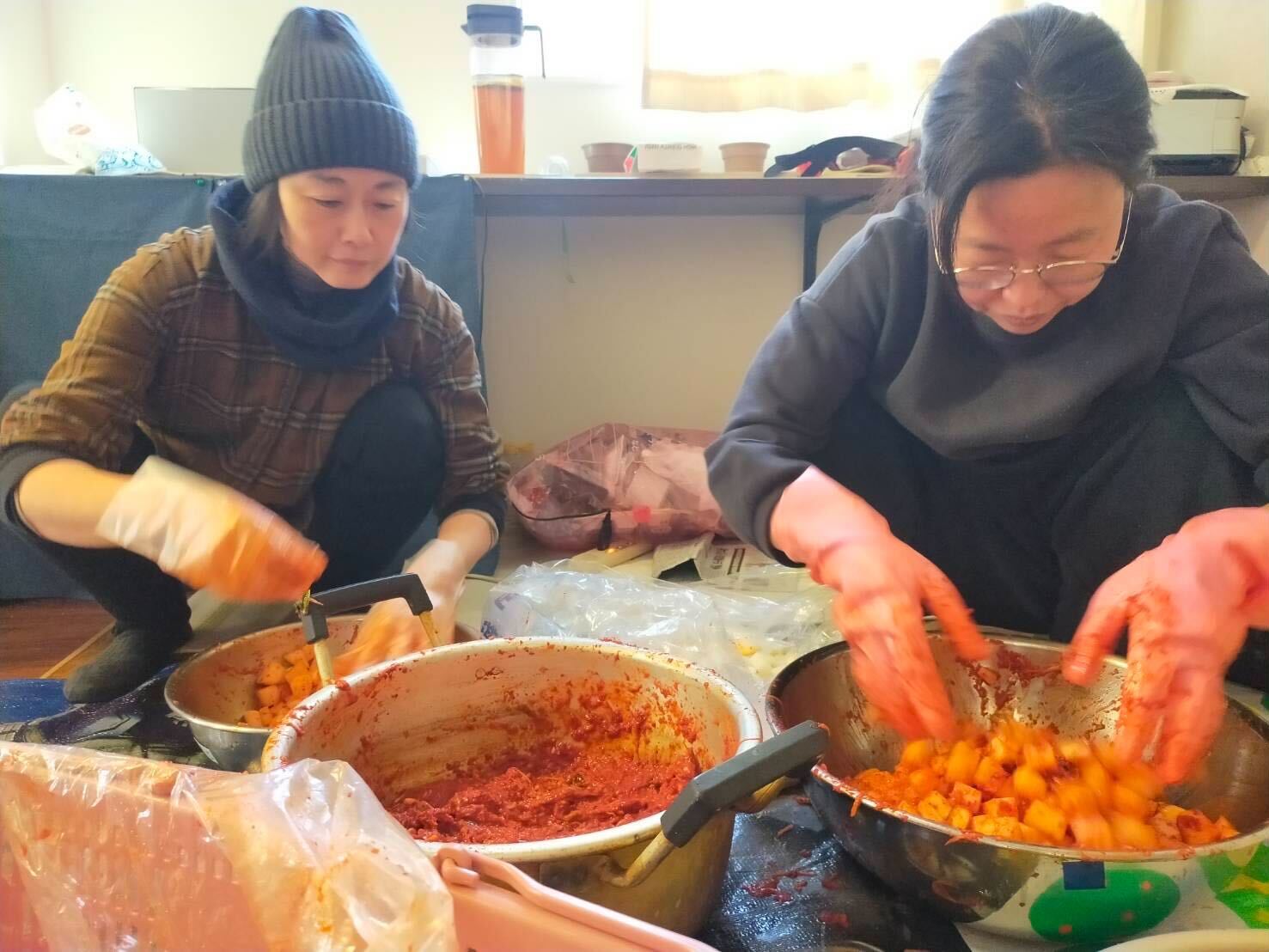
It's like falling in love with Heung mi and Jinchan's dynamic moves.
Bang bang on the vegetables, kimchi seeds? Sauce? to the vegetables.
They mix them in, rub them in, and put them in a big bag.
They would ask everyone who came by, "Do you want to taste it?”
and throw them into their mouths. It's nostalgic.
Heung mi and Jinchan were trying to wash leafy greens outside, as if the kitchen was too small for them.
The sight of the two washing them outside was a sight to behold.
....
Soon after, the kimchi was fully pickled and put into the special refrigerator.
It is something that is passed down from person to person, from parent to child.
This kind of scene may become a year-end tradition in the community.
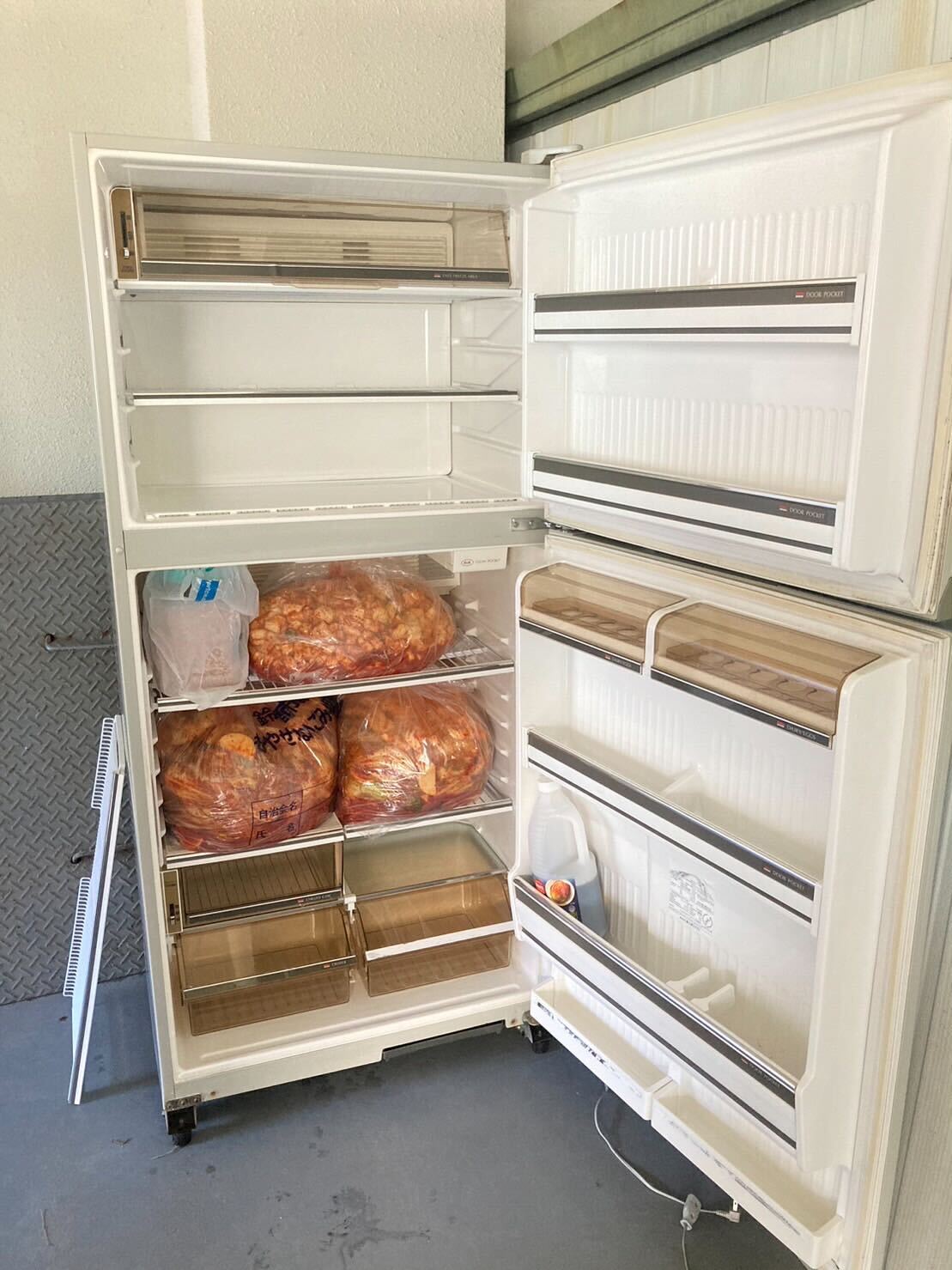
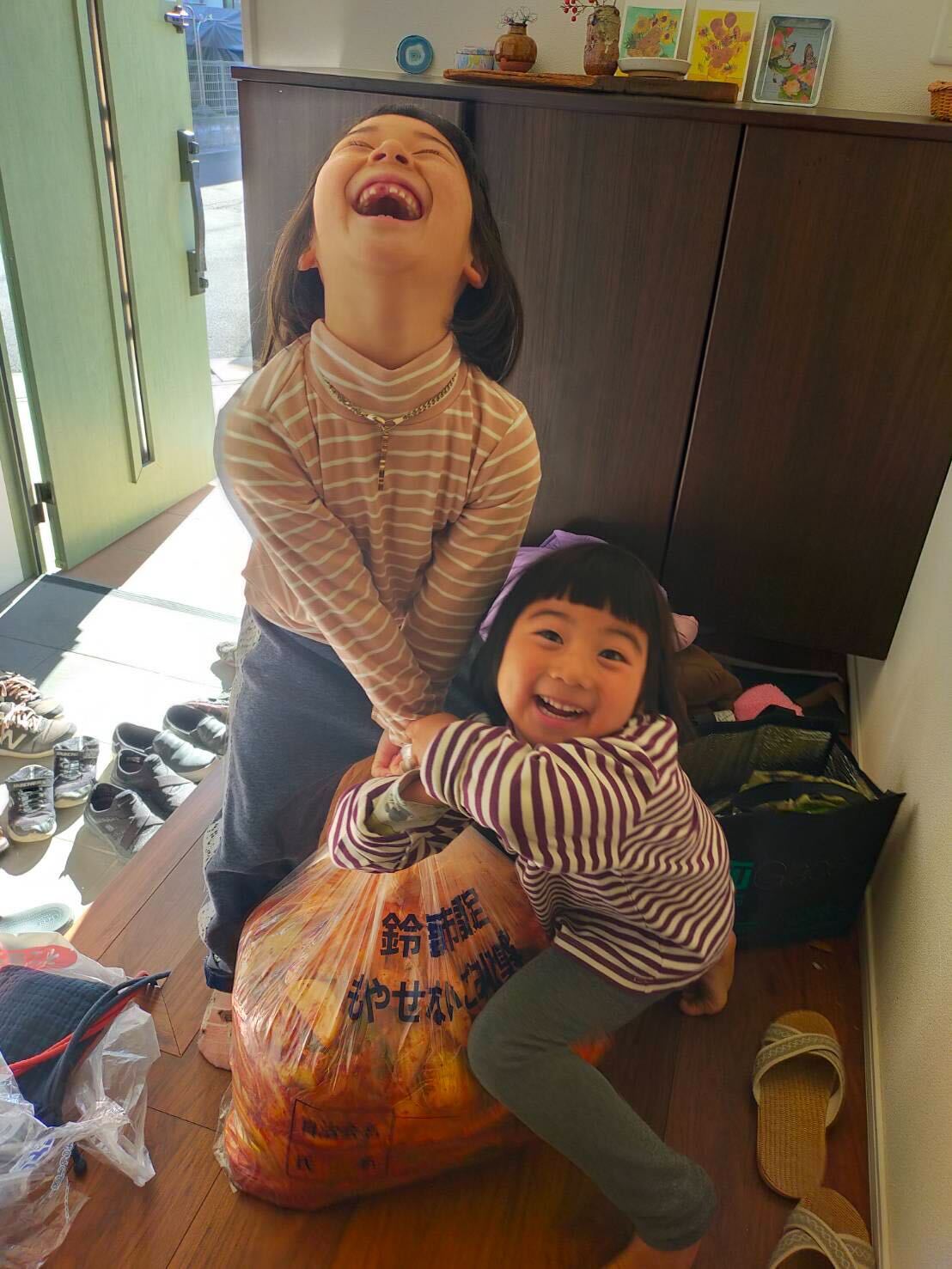
In every age, in every land, children simply entrust their lives to
To their society, to their community, to their parents, to their people.
That is why children can live with radiance, with purity and innocence.
If they could live through life as it is, it would be natural that there would be no doubt or caution.
If there is any resistance, they will enter a narrow and narrow tunnel. We mistakenly believe that such complicated things are life.
But I think that even adults are actually entrusting things to others.
No matter how much our consciousness resists, being alive is a manifestation of entrusting, and it is because we entrust that we are able to live.
When the reality of life and the reality of living become clearer, I think that the "resisting consciousness" will naturally dissipate. I wonder if we will be more inclined to entrust our lives to them. Just like that.
All living things entrust and entrust each other to live in this world and create a better tomorrow together. Microorganisms, plants, insects, animals, and humans are all exquisitely interrelated, in their own ways and at their own pace. Such a dynamic harmony of countless lives continues to flow through the veins. It is as if they are laughing at our selfish human thinking.
There is no such "blame" on each other.
A grain of me, a drop of community in the infinite.
But they are all connected.
Tomorrow is a new year.
What step shall we take?
